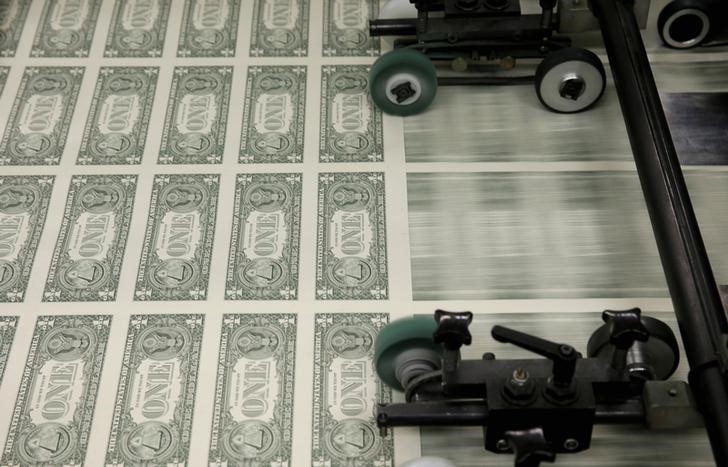Investing.com - The dollar turned broadly lower against a basket of other major currencies on Tuesday, as the release of disappointing U.S. data sparked fresh concerns over the strength of the economy, fuelling uncertainty over the timing of a rate hike.
The U.S. Commerce Department said that retail sales rose 0.9% last month, disappointing expectations for a gain of 1.0%. Retail sales fell by 0.5% in February, whose figure was revised from a previously reported fall of 0.6%.
In a separate report, the Commerce Department said that producer prices increased 0.2% last month, in line with forecasts and after falling 0.5% in February.
Year-over-year, the producer price index declined 0.8% in March, meeting expectations and following a drop of 0.6% in the preceding month.
Demand for the dollar had been supported recently by expectations for higher interest rates, as investors regained confidence that the U.S. economy would continue to recover after recent economic reports pointed to a slowdown at the start of the year.
The U.S. dollar index, which measures the greenback’s strength against a trade-weighted basket of six major currencies, was down 0.28% to 99.45.
EUR/USD climbed 0.53% to 1.0623, easing off session lows of 1.0532.
Earlier Tuesday, data showed that the euro zone's industrial production increased 1.1% in February, easily surpassing forecasts for a gain of 0.4% and after a decline of 0.3% in January.
Year-on-year, industrial production rose at a rate of 1.6% in February from a year earlier, compared to expectations for a 0.7% increase and after rising 0.4% the previous month.
The single currency has weakened broadly so far this year after the European Central Bank unveiled a trillion-euro quantitative easing program in January. The bank started asset purchases last month, pushing euro area bond yields to new lows.
The pound also erased earlier losses, with GBP/USD rising 0.33% to 1.4726.
The Office of National Statistics reported on Tuesday that the annual rate of U.K. consumer inflation remained unchanged at a record low zero in March, unchanged from the previous month and in line with forecasts.
The ONS said that March’s consumer prices index dropped by 0.01%, which it rounded up to zero.
Core inflation, which strips out volatile food and energy costs, slowed to an almost nine-year low of 1.0% last month from 1.2% in February. Economists had expected underlying inflation to remain unchanged.
Elsewhere, the dollar was lower against the yen and the Swiss franc, with USD/JPY retreating 0.47% to 119.58 and with USD/CHF shedding 0.26% to 0.9753.
The Australian, New Zealand and Canadian dollars turned higher, with AUD/USD up 0.18% to 0.7601 and NZD/USD gaining 0.59% to 0.7496, while USD/CAD slid 0.33% to trade at 1.2554.
